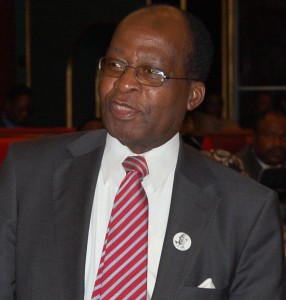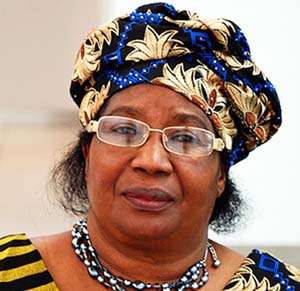Malawi President Joyce Banda’s all-inclusive government has received mixed reactions with some commentators fearing it will kill the opposition while others arguing she had no choice but form such a government.
Opposition political parties were taken unawares by the inclusion of some of their members into the Cabinet and have since said they now have to strategise on how they will operate under such circumstances.

Banda was sworn in as President on April 7 2012 following the death of president Bingu wa Mutharika. She had fallen out of grace with Mutharika and formed her People’s Party (PP).
Last week, she reconstituted a 32-member Cabinet from various political parties.
The Cabinet includes 18 MPs from the Democratic Progressive Party (DPP), six from her PP, one from Malawi Congress Party (MCP), two from United Democratic Front (UDF), one each from Congress for Democrats and Malavi People’s Party.
Some political parties and other stakeholders fault Banda for the manner in which she put up the Cabinet, not consulting the political parties on the choice of the ministers and not discussing the modus operandi of the parties, and the ministers and government.
“The threat to kill the opposition is there, but we shall have to work hard to make sure that that does not happen because this country chose multiparty democracy. The approach that has been taken in the name of all-inclusive government is clear reflection of going towards one-party system,” DPP’s secretary general Wakuda Kamanga said on Wednesday.
‘Ministers appointed in individual capacities’
He said the all-inclusive government had no blessing from his party because the ministers were appointed in their individual capacities. He was also quick to add that Malawi has not reached the stage of requiring a government of national unity.
Said Kamanga: “The ministers that have come from the DPP are there in their individual capacities. As a party, we were not consulted. We want PP to clarify on the appointments. As a country, we are not at a stage or warring situation that requires an inclusive government. The checks and balances and future of democracy are under threat.”
MCP spokesperson Nancy Tembo said the appointment of the only Cabinet member from the party, Rachel Zulu, was at individual basis and had no party blessing.
Tembo said the issue of government of national unity or inclusive government does not matter, but that those appointed should serve Malawians in addressing the challenges facing the country.
However, an MCP caucus held on Monday in Lilongwe resolved that the party should maintain its opposition status to strengthen the country’s democracy. This comes after the party’s president John Tembo’s son has been appointed deputy ambassador.
Some supporters of the Alliance for Democracy (Aford) have already taken to task the party’s leadership over the appointment of its two members into Cabinet. They argue that the appointments could dent the party’s popularity.
One member of the party asked the Executive: “What will they [the ministers] be telling the people without biting the fingers of the PP government?”
Executive member of the party Dan Msowoya admitted that the appointments could dent its popularity and pledged a meeting would be held to strategise on how the ministers should work to keep the momentum in the party.




